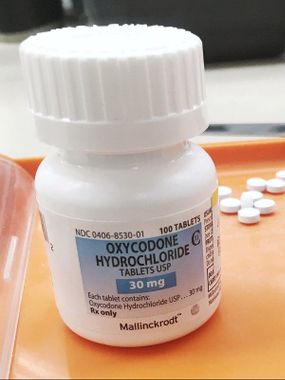Description
Buy Oxycodone online
What is oxycodone used for?
Oxycodone can relieve moderate to severe acute pain. It is most useful for spontaneous bursts of shooting pain, also known as paroxysmal pain.
Doctors often prescribe oxycodone for:
- paroxysmal pain
- steady pain
- allodynia, or a clinically sensitive pain response
- chronic pain
- cancer-related pain
How to take oxycodone
Oxycodone is available in a number of forms, including:
- liquid
- concentrated solution
- tablet
- capsule
People take all forms of oxycodone orally, meaning by mouth. A doctor will advise a person what dose of oxycodone to take and how often.
It is essential to follow a doctor’s instructions carefully. They will determine the correct amount of oxycodone for an individual to take, and a person must not exceed this or take the drug more frequently than stated on their prescription.
It is best to carefully measure out liquid forms of oxycodone to avoid taking too much.
Depending on why they are taking it, a person can use oxycodone for short- or long-term pain relief. Again, it is important only to take oxycodone for as long as the doctor prescribes.
Some oxycodone capsules and tablets are extended-release, meaning they release the medication over a longer time than other types.
If a person feels nauseous, it may help to take oxycodone with food.
If a person is taking other drugs, they should discuss with their doctor how these may interact with oxycodone.
Oxycodone can be addictive. People with an alcohol or substance use disorder should discuss this with their doctor before using oxycodone.
If a person has a family history of alcohol or substance use disorder, they should also tell their doctor. A family history of these conditions may mean a person is more likely to become addicted to oxycodone
Oxycodone increases the level of dopamine in a person’s brain. Dopamine is a brain chemical, or neurotransmitter, that controls feelings of pleasure.
Taking drugs that boost dopamine may cause a person to experience a high, which people sometimes refer to as euphoria. Drugs that affect brain chemistry in this way can lead to addiction.
A person may become addicted to oxycodone without intentionally misusing it. Taking oxycodone for a long time can increase a person’s tolerance to it. This means that they may need to take higher doses of it to continue experiencing its pain-relieving benefits.
Over time, taking oxycodone can change a person’s brain chemistry. This means that they may need help coming off the drug.
If a person develops an addiction to oxycodone, they may experience withdrawal symptoms when they stop taking it. For this reason, it is essential not to take oxycodone for longer than a doctor prescribes.
If an addiction develops, a doctor can help people access the treatment they will need to manage this.
This micronutrient test checks for vitamin B12, D, E, Magnesium, Copper, Selenium & Zinc. Get your results in 2-5 days from an accredited laboratory with free shipping, Order today for 30% off.
People may want to speak to a doctor about the following risks before taking oxycodone:
- Pregnancy and breastfeeding: It is not always safe to take oxycodone when pregnant or breastfeeding. The drug can pass on to the baby through breast milk.
- Older people: Seniors may have a higher risk of side effects from oxycodone. This is because their kidney function may be less, which makes it harder for their bodies to process the drug.
- Children: Oxycodone may not be safe for children. Children should only ever take oxycodone if a doctor decides this treatment for them.
People with the following health conditions should speak to their doctor before taking oxycodone:
- Head injury: Oxycodone may increase the pressure around the brain, so taking oxycodone could be harmful to people with head injuries.
- Allergies: If someone has ever had an allergic reaction to oxycodone, they should not take it again.
- Breathing problems: Oxycodone can slow a person’s breathing, which can be dangerous for people with conditions that affect their breathing.
- Bowel or stomach conditions: Oxycodone may make bowel or stomach conditions worse because it affects the way food moves through the gut.
- Kidney or liver problems: If a person has kidney or liver problems, their body may not be able to process oxycodone effectively. This can lead to the drug building up in the blood and causing problems.
- Epilepsy: Oxycodone may make seizures worse if someone has epilepsy
- Pancreas and gallbladder problems: Oxycodone may increase the risk of pancreatitis.
- Adrenal or thyroid problems: Taking oxycodone may make conditions affecting the adrenal and thyroid glands worse.
- Urinary problems: Oxycodone may make conditions that cause trouble urinating worse.
Taking oxycodone may lead to some side effects. If the following side effects are ongoing or severe, a person should tell their doctor:
- changes in mood
- headache
- dry mouth
- sleepiness
- stomach pain
- flushing






Reviews
There are no reviews yet.